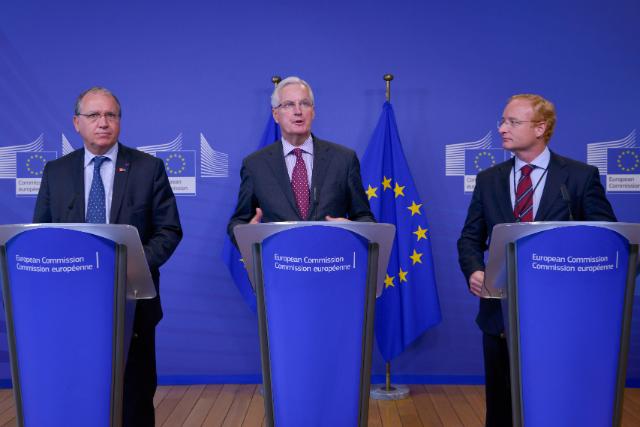

YESTERDAY we wrote about the TC Heartland determination turning one. Lawyers, especially upon this decision's anniversary, still try to work their way around it. They want to make it possible to drag companies into patent courts/trials far away from where they're based. In re HTC Corp. was recalled yesterday (Sunday) by Watchtroll. "The patent venue statute does not apply to foreign corporations sued for patent infringement," it said. "These foreign defendants may be sued in any judicial district where they are subject to personal jurisdiction." This is part of a pattern.
"Can British companies be sued over patent infringement in other countries (for their activities inside Britain)?"Patent maximalists and Team UPC in their lawyers-centric sites don't seem bothered by such questions. They seem so eager to see a torrent of new patent lawsuits, so earlier this month they were in "full fanboi" mode for the UPC.
Max Walters, a journalist rather than a lawyer, called it the "patent court's Brexit paradox". August Debouzy, boosters of Battistelli agenda, spoke of "the disappearance of a statute of limitations". Law firms were generally enthusiastic however. FB Rice's Jeremy Dobbin, Madeleine Kelly, Steve Gledhill, Andrea Ruhrmann, Eddie Walker, Toby Thompson and Will Morgan acted as though UPC is inevitable, George Tebbutt (Haseltine Lake LLP) said it "inches closer," and Mayer Brown LLP's Oliver Yaros, Mark A. Prinsley, Dr. Ulrich Worm and Christoph J. Crützen wrote 6 days ago that Britain had ratified (no matter if it's not really possible for the country to ever participate).
"Long story short, there are serious and tough questions to be asked -- ones that Team UPC is unwilling to answer, let alone bring up."Even Joff Wild, who had promoted the UPC on the EPO's payroll (the PR department/external agencies), cited this article from yesterday and wrote in IAM that the situation "could explode politically". Mr. Wild makes it no secret that he opposes Brexit (he said so for a couple of years) and here is his explanation:
It is, for example, the British public’s complete ignorance of IP law and policy – and the consequent total lack of interest that it inspires among the country’s politicians – that allowed the UK government to ratify the UPC agreement last month.
It happened, let’s not forget, despite questions the move raises about the post-Brexit role of the Court of Justice of the European Union; and the apparent contradiction inherent in insisting on taking back control while signing up to a treaty that means, for the first time, judges from outside the UK will decide on infringement and validity issues, as well as remedies, in patent litigation directly affecting the UK.
In the same way, you are not going to get much more than a shrug of the shoulders from 99% of the British population when it is finally decided what happens to Community trademarks currently valid in the UK or how the country’s copyright regime might evolve once EU directives and regulations no longer apply here.
[...]
Today’s Observer reports that UK and US officials are secretly discussing some of the issues that will need to be sorted out if a post-Brexit trade deal between the two countries is going to happen. One that has been identified is changing the definition of what can be classed as whisky. That is something which would have huge ramifications in Scotland.
What’s more, the report states: “The US also wants protected designation of origin, which safeguards products such as Cornish pasties or Melton Mowbray pork pies, dispensed with because they “undermine access” for US producers.”